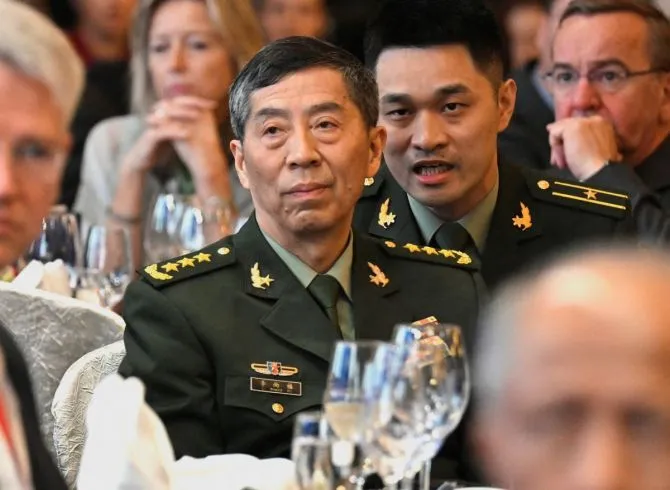China’s recent dismissal of Defence Minister Li Shangfu, coupled with the abrupt removal of other key Cabinet members, has sent shockwaves through the country’s political landscape. The lack of transparency surrounding these high-profile departures has fueled widespread speculation and raised significant questions about the selection process and policy dynamics within the Chinese government. As the fallout from this unexpected reshuffle continues to reverberate, a closer examination of the events leading to these dismissals and their potential implications is critical to understanding the evolving political climate in China.
Unraveling the Enigma: Lack of Clarity Surrounding Li Shangfu’s Dismissal
China’s refusal to provide a concrete explanation for the dismissal of Defence Minister Li Shangfu has left the international community grappling with uncertainties about the underlying factors behind this significant decision. With no official statement from the Chinese government regarding the motives or circumstances leading to Li’s removal, analysts and observers are left to speculate about the potential political implications and broader repercussions of this unexpected shake-up within the Chinese defence establishment.
Policy Enforcers or Decision-makers: Understanding the Role of Ministers in China’s Political Hierarchy
In the context of China’s one-party system, the role of ministers extends beyond their official designations, encompassing a complex interplay of policy enforcement and decision-making within the country’s political hierarchy. Li Shangfu’s prominent position as the public face of the People’s Liberation Army (PLA) and a member of the Central Military Commission (CMC) underscores the significance of his dismissal and its implications for China’s military strategy and command structure.
The Ongoing Reshuffle: Cabinet Replacements and the Dynamics of Chinese Governance
Amid the dismissal of Li Shangfu, the removal of Finance Minister Liu Kun and Science and Technology Minister Wang Zhigang has added further complexity to the ongoing political reshuffle within the Chinese government. The absence of explicit reasons for their dismissals has fueled speculation about the underlying factors influencing these pivotal decisions and their potential impact on China’s economic and technological landscape.
Personal Affiliations and Power Dynamics: Uncovering the Influence of President Xi Jinping
The close ties between the dismissed ministers and President Xi Jinping have prompted discussions about the intricate power dynamics and personal affiliations that underpin China’s political appointments. Li Shangfu and Qin Gang, both handpicked by President Xi for their critical roles, have raised questions about the nature of political allegiances and the implications of their removal for the president’s broader agenda and leadership within the Chinese government.
Data Insights: The Impact of the Cabinet Shake-up on China’s Political Framework
To gain a comprehensive understanding of the implications of the recent cabinet reshuffle, the table below highlights key data points and insights related to the dismissed ministers and their roles within the Chinese government.
| Dismissed Minister | Official Role | Key Accomplishments | Potential Impact on the Political Landscape |
|---|---|---|---|
| Li Shangfu | Defence Minister | Prior to this, Li Shangfu held the positions of Deputy Commander of the PLA General Armaments Department and Deputy Commander of the PLA Strategic Support Force. He worked at the Xichang Satellite Launch Center for 31 years, 10 of those as the center director. | Good |
| Liu Kun | Finance Minister | Lan Fo’an is appointed as China’s Finance Minister to address debt risks as worries over local government debt grow. Lan, 61, served as the province’s previous governor in northwest Shanxi. | Good |
| Wang Zhigang | Science and Technology Minister | Information engineer Wang Zhigang, born in October 1957 in China, held the position of Minister of Science and Technology from 2018 until 2023. He previously held the position of general manager for the state-owned military industrial complex China Electronics Technology Group Corporation. | Good |
The Way Forward: Navigating Political Uncertainty and Ensuring Stability
As China grapples with the aftermath of this unforeseen reshuffle, fostering political stability and ensuring a seamless transition in key leadership positions will be crucial for maintaining continuity and resilience within the country’s governance structure. Addressing the lack of transparency surrounding the dismissals and fostering open communication channels will be imperative for instilling public confidence and preserving the integrity of China’s political framework amidst these turbulent times. Stay tuned for further updates as the ramifications of this significant cabinet shake-up continue to unfold within China’s political sphere.
